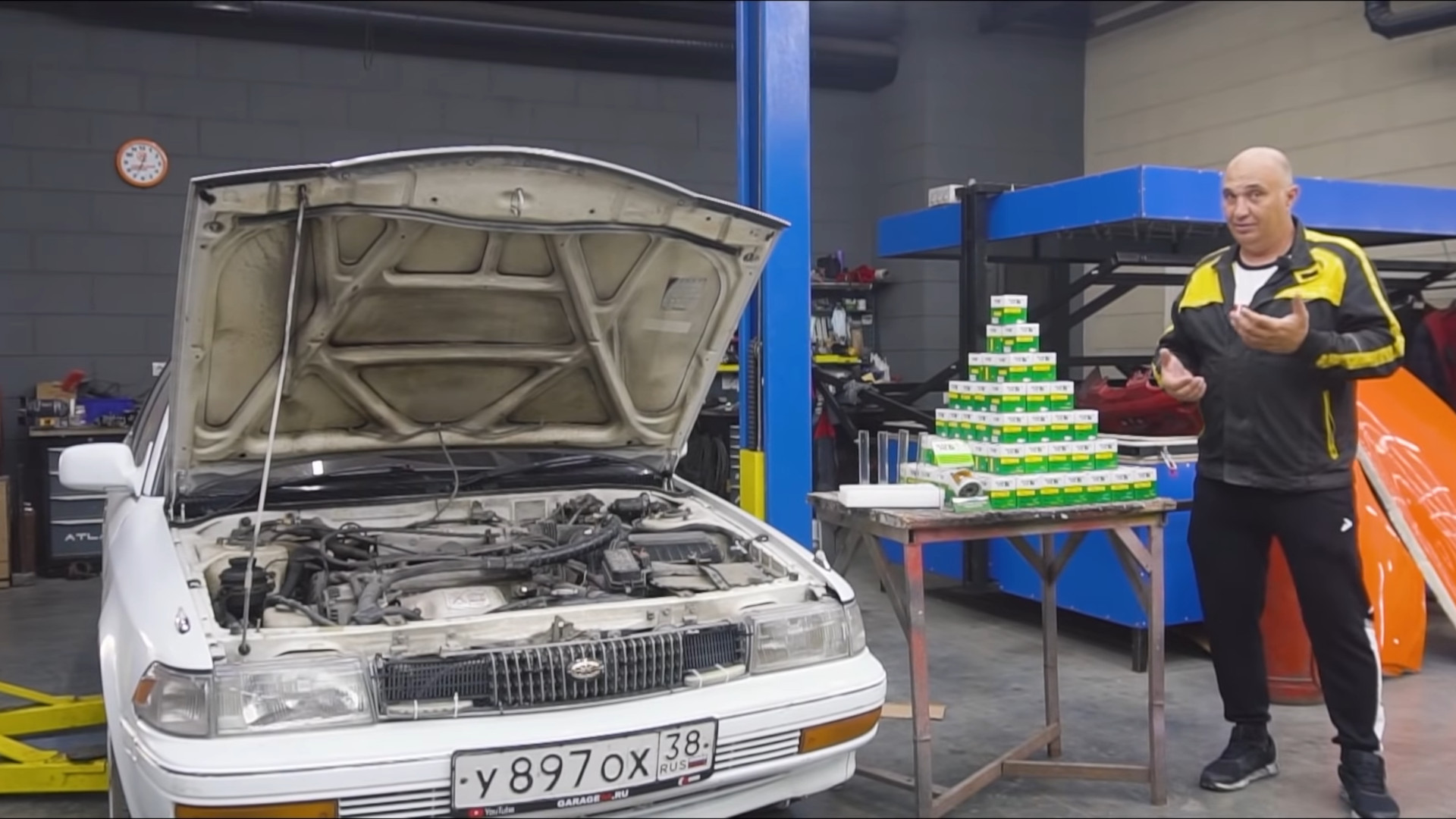

We may earn revenue from the products available on this page and participate in affiliate programs. Learn more ›
Usually, when you do a service on a car, you’re pouring in fresh, golden oil into your precious engine. Six months to a year later at the next service interval, with many more miles on the clock, you’ll often be dumping out a significantly blacker, dirtier fluid. The team at Garage 54 decided to find out if this old, dirty oil could be cleaned up and restored to its original state, with the help of a big pile of oil filters.
The initial process involved installing a fresh oil filter, and starting the car and running it for 5 minutes. This aim is to circulate the oil in the sump through the filter to remove contaminates and clean it up. Then, the filter is removed, changed with a fresh one, and the process repeated. After changing out ten filters in a row, the oil was compared to its state at the beginning of the test. While there were less particulate deposits, the color and consistency of the oil otherwise seemed virtually unchanged.

Anyone that has ever changed their own oil, however, will spot the problem here. Each time the filter is changed, a significant amount of oil gets trapped inside. Doing the experiment in this manner would quickly deplete the oil in the vehicle. Thus, for the ensuing 40 filter changes after that, it had to be recovered. When a filter was changed, the old filter had the dirty oil inside run through another oil filter on the bench via gravity, before it was poured back into the engine.

The final result was perhaps a disappointing one; despite running through a full 50 filters, the oil looked barely any cleaner or fresher than at the beginning. It’s worth noting, of course, that even if the oil’s color had changed, it wouldn’t necessarily indicate that it was back to its original specifications.
Modern oils consist of a complex mixture of additives, and these additives and the oil itself tend to degrade as the engine racks up running time. Heat cycles and combustion byproducts cause chemical changes to the oil’s makeup, and wear particles from moving parts all build up over time and reduce the oil’s performance. This is the primary reason why oil is changed regularly. Simply filtering out particles won’t actually do anything to restore the original condition of the oil itself. Filtering is still beneficial, of course, as particulate contaminants in oil will cause accelerated engine wear. However, there’s no simple way to turn old oil back into fresh oil simply by running it through a paper filter.

It’s nonetheless an interesting experiment to watch over a cup of coffee, like much of the antics of the Garage 54 team. One can’t help but feeling it must be blissful to have an old Toyota, fifty oil filters, and a day to simply while away the hours tinkering under the hood. Just remember to change your oil on time if you want to keep racking up the miles trouble free.
Got a tip? Let us know: tips@thedrive.com